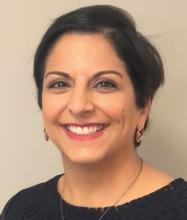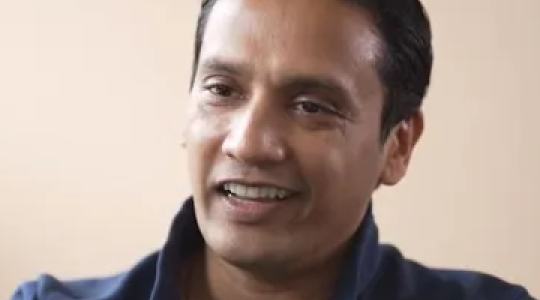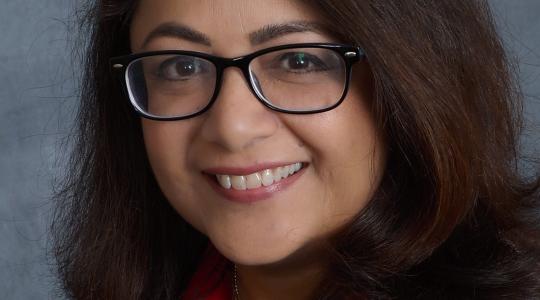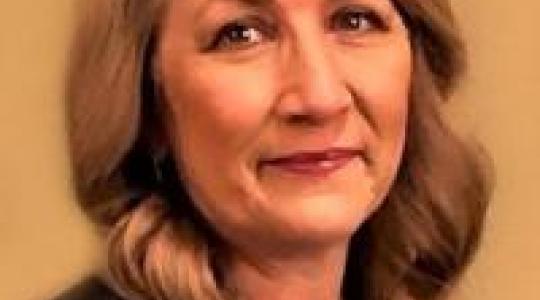If you’re born and raised in Texas, you might argue that you’ll never have a need to leave. This certainly holds true for Morvarid Rezaie, DO. “But you can also call me Mo,” a nickname she’s had since high school.

“Of course, my dad hated it because it was truncating his mother's name, which is who I'm named after,” she said. Morvarid, a Persian name meaning “pearl,” isn’t common in most Texas circles. “It is beautiful, but you know, it's just so hard in Texas to deal with that.
“My chemistry teacher asked me, ‘Can I call you Mo?’ And I was like, ‘Sure, that's fine.’”
Rezaie has dedicated herself to caring for her fellow Texans for the past 11 years, fulfilling her childhood goal of becoming a doctor.
The oldest of four daughters, Rezaie’s family lived in East Texas before moving to Plano her senior year in high school. She earned her bachelor’s from the University of Texas at Dallas, later attending medical school at the University of North Texas Health Science Center-Texas College of Osteopathic Medicine. She completed her internal medicine residency at Plaza Medical Center of Fort Worth (now Medical City Fort Worth) and served as chief resident during her final year.
“So, yeah, I've been in Texas my whole life,” she said. “I don’t see any reason to move.” She currently lives in Fort Worth with her husband and two children.
Practice management, telehealth support during COVID-19
Rezaie started her career in Fort Worth, spending nearly a decade as an employed physician within a large group practice. So opening her own practice in 2018 was a huge leap. “Stepping out on my own was nerve-racking,” she said. “Running a practice and managing insurance contracts and coding issues was daunting. We don’t learn that in medical school.”
Southwestern Health Resources (SWHR) helped her navigate these tasks with multiple resources, including a comprehensive electronic medical record (EMR) platform, allowing her to easily coordinate referrals and access nearly real-time patient information.
“I don’t have the time to chase down information. I’d rather spend that time with my patients. By helping me become a more informed physician, SWHR is helping my patients.”
By helping me become a more informed physician, SWHR is helping my patients.
And earlier this year, when the coronavirus pandemic drastically affected physicians’ ability to see patients, SWHR quickly stepped in with resources for coding, billing and reimbursement, and technology training. “I was not a fan of telemedicine,” Rezaie said, “but after the first few telemedicine consults, I wondered why I hadn’t adopted this sooner.”
Now she envisions a greater opportunity to partner with SWHR to embrace additional technology beyond the pandemic. “Telemedicine plus related advances in monitoring technologies will enable us to see more patients and provide basic care where patients are perhaps more comfortable, their own homes.”
Bringing together a love of science and the human connection
When asked about her earliest interest in medicine, Rezaie pointed to elementary school. “Probably the nerdy answer is, just the science, the fascination of the human body,” she said.
As she grew in her knowledge of medicine, she said she developed a deeper appreciation for how physicians can impact people. “I recognized that medicine influences people physically, spiritually and emotionally. That’s the dominant reason I am a primary care doctor.”
In addition to owning and running her practice, Fort Worth Primary Care, Rezaie serves as medical director for Asana Hospice, an Amedisys company, and as palliative care physician for the Center for Cancer and Blood Disorders, a local oncology group.
Rezaie, who is board certified in hospice and palliative medicine, said she “truly loves” this area of healthcare.
“Getting to participate in that part of medicine in the palliative world and focusing on quality of life has been so awesome for me,” she said. “I love doing the primary care, but I also understand that you can start looking at quality of life over quantity especially if comes to patients who have these chronic life-limiting illnesses.”



